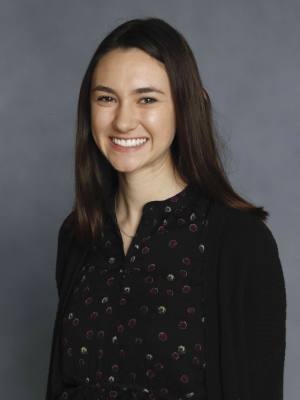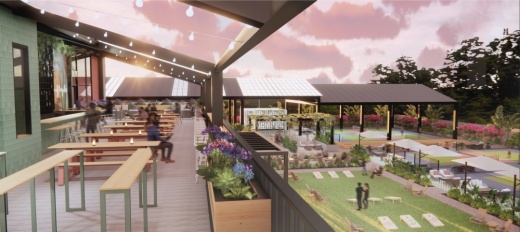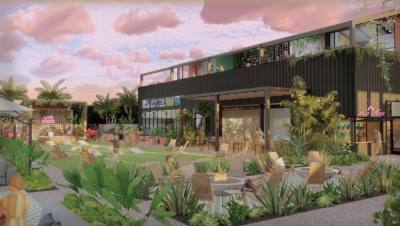Set to open in late 2022, Electric Pickle will build a 4.6-acre pickleball-themed complex with 12 pickleball courts and a two-story restaurant with a large patio and rooftop bar, according to a June 11 press release. The restaurant's menu will include "global comfort cuisine" with tacos, pizzas, Korean protein bowls, sandwiches and burgers.
A great lawn will host live music, fitness classes and group gatherings. There will also be cornhole and bocce ball courts.
The complex will be built near 183A Toll and FM 1431 at 580 Spanish Oak St., Cedar Park.
Pickleball, a sport similar to tennis, badminton and ping-pong, is a fast-growing sport with 4.2 million players in the United States, according to the USA Pickleball Association.
Electric Pickle, owned by California-based Eureka Restaurant Group and Rockets & Pineapples, will open its first complex in Cedar Park with two more Austin-area complexes opening in 2023. One will build on Burnet Road in Austin and the other in Bee Cave. The company is also building complexes in Frisco and Houston areas and in Nevada and Arizona, according to the release.
“Pickleball’s popularity is skyrocketing throughout Central Texas, and we plan to elevate the playing experience by offering artisan food and drinks and other activities in an upscale club environment that is open to the public,” Eureka co-founder Paul Frederick said in the release. “Electric Pickle aims to be the Topgolf of pickleball, and Cedar Park is a perfect location due to the community’s proven enthusiasm for family-friendly, sports-themed entertainment.”
Eureka is partnering with Austin real estate developer David Kahn on the project. Kahn, who is also a pickleball player, said most Austin pickleball facilities do not offer places to socialize around the game.
“We anticipate that Electric Pickle will become a hive of activity throughout the day with baby boomers and families in the morning, professionals on lunch breaks, and young people in the evenings,” Kahn said.






